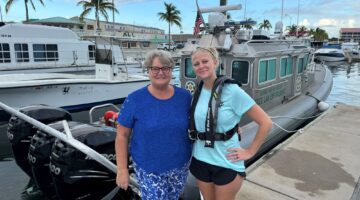Business Law 101 / Restaurant Liquor Licenses
By Albert L. Kelley
One of the main decisions a restaurant must make is whether they wish to serve alcohol. Not serving alcohol reduces the administrative and regulatory issues, however, serving alcohol can greatly increase your profits. Most restaurants can see alcohol sales making up 30% of their profits and the most profitable restaurant in America in 2011 saw alcohol sales making up 75% of their total sales. With profits increasing by that much, many owners desire to add to their menu.
Once a restaurant owner decides they want to serve alcohol, the next question is what type of alcohol. The type of alcohol you wish to sell will determine what license is required and may restrict certain other issues within the restaurant. The three categories are beer, wine, or spirits. A beer and wine license is relatively easy for a restaurant to obtain. For beer and wine, the restaurant will need a 2COP license. These are unrestricted, meaning there is no limit to how many of these licenses may be issued in a county.
The 2COP license allows the restaurant to sell beer and wine for consumption on premises, but also allows package sales. So the restaurant may also sell six packs and bottles of wine for consumption off premises.
If the restaurant wants to sell spirits, they will need a 4COP/5COP/6COP/7COP/8COP. The license type is based on the County population. These licenses are generally designated as SRX license for restaurants. The license allows only on-premises consumption of beer, wine or spirits. No package sales are allowed. Also, sales may only occur incidental to the restaurant service. In other words, alcohol sales may only occur while the kitchen is selling food. This license is not transferrable to any other location.
To obtain a liquor license, an application must be submitted to the Department of Professional Regulation, Division of Tobacco and Alcoholic Beverages. The application (ABT-6001) is quite lengthy. As part of the application, the applicant must list all managing personnel of the business by name, address and social security number, along with their fingerprints and certified copies of any arrests dispositions. The application must include a sketch of the premises, including all interior walls and all doors. Before submitting the application, it must be approved by the local zoning department, the Department of Revenue and the Department of Health.
The application process can take several weeks. However, in order to allow the restaurant to serve alcohol in the meantime, the Department will issue a temporary license for an additional fee.
There is a different system for bars. Bars can also get a 2COP license if they only serve beer and wine. But if the bar wants to serve spirits, they must get a 4COP/5COP/6COP/7COP/8COP Quota license. These licenses are limited- only a certain number of licenses will be issued in each county. Because of this, these licenses are hard to get. The State generally will not issue them so they have to be purchased from someone already holding one. The cost can easily exceed $100,000.
Al Kelley is a Florida business law attorney located in Key West and previously taught business law, personnel law and labor law at St. Leo University. He is also the author of four law books: (“Basics of Business Law” “Basics of Florida’s Small Claims Court”, “Basics of Florida’s Landlord/Tenant Law” and “Basics of Starting a Florida Business” (Absolutely Amazing e-Books)). This article is being offered as a public service and is not intended to provide specific legal advice. If you have any questions about legal issues, you should confer with a licensed Florida attorney.
[livemarket market_name="KONK Life LiveMarket" limit=3 category=“” show_signup=0 show_more=0]









No Comment